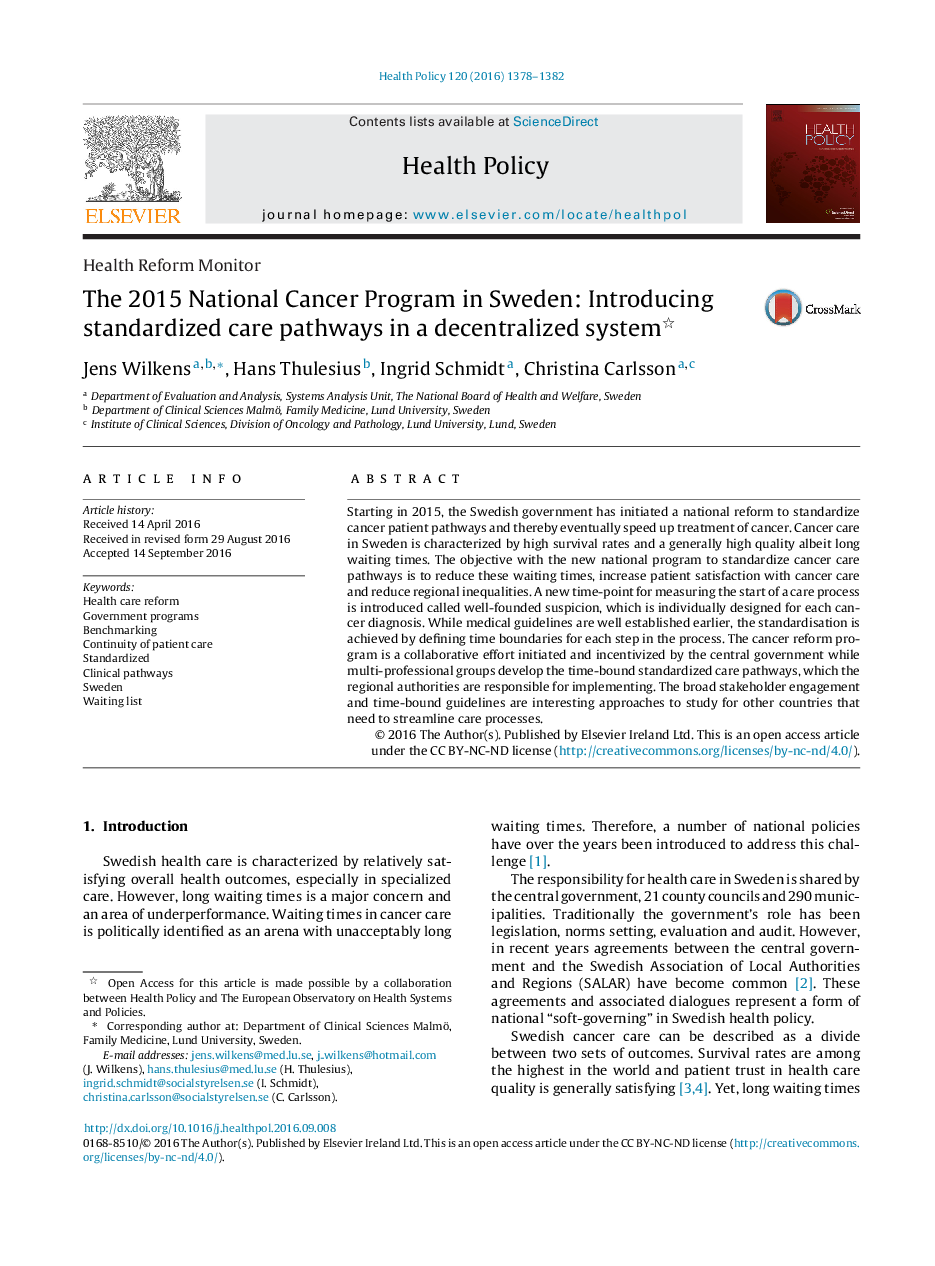| Article ID | Journal | Published Year | Pages | File Type |
|---|---|---|---|---|
| 6238879 | Health Policy | 2016 | 5 Pages |
â¢New ways of national reform in strictly decentralized health systems.â¢Reform to solve persistently long waiting times by standardising cancer care pathways.â¢Anticipated effects of implementing time slots in a complex chain of health services.â¢Policy for standardising health services which are heterogeneous.
Starting in 2015, the Swedish government has initiated a national reform to standardize cancer patient pathways and thereby eventually speed up treatment of cancer. Cancer care in Sweden is characterized by high survival rates and a generally high quality albeit long waiting times. The objective with the new national program to standardize cancer care pathways is to reduce these waiting times, increase patient satisfaction with cancer care and reduce regional inequalities. A new time-point for measuring the start of a care process is introduced called well-founded suspicion, which is individually designed for each cancer diagnosis. While medical guidelines are well established earlier, the standardisation is achieved by defining time boundaries for each step in the process. The cancer reform program is a collaborative effort initiated and incentivized by the central government while multi-professional groups develop the time-bound standardized care pathways, which the regional authorities are responsible for implementing. The broad stakeholder engagement and time-bound guidelines are interesting approaches to study for other countries that need to streamline care processes.
